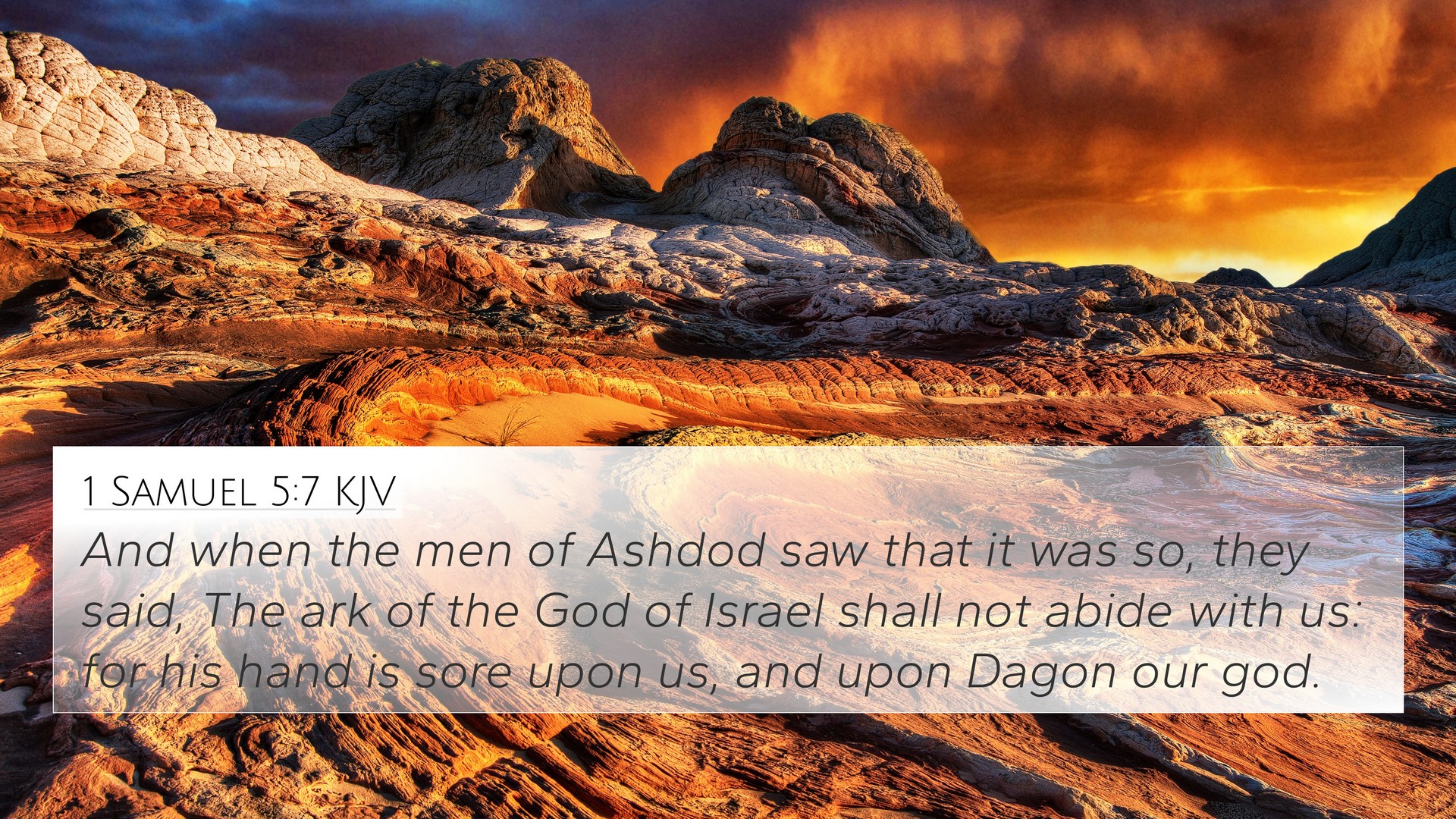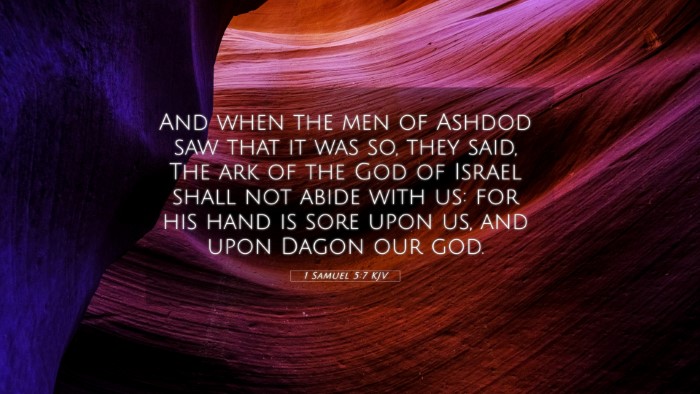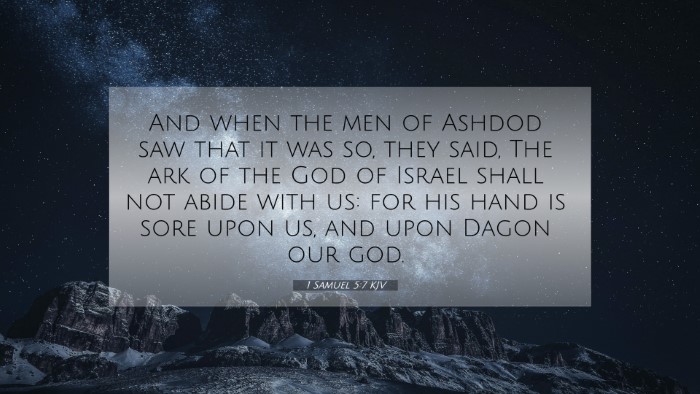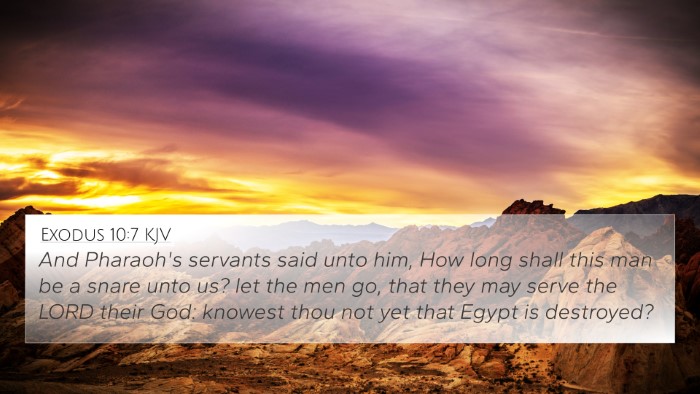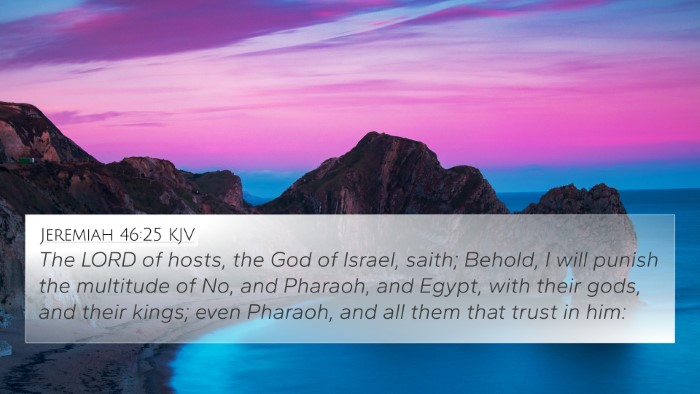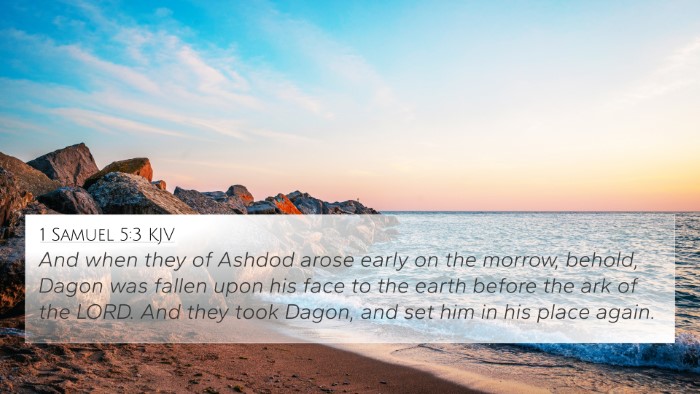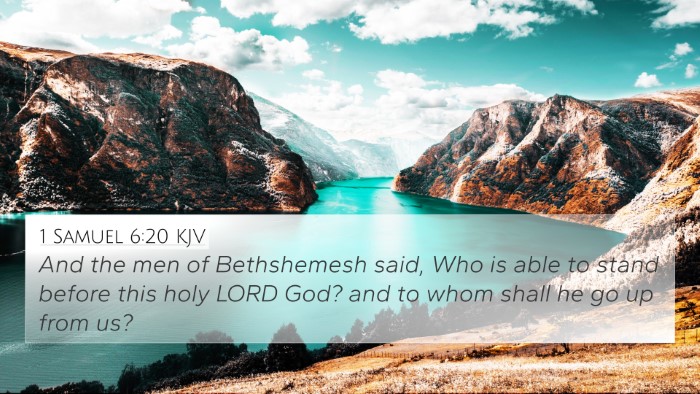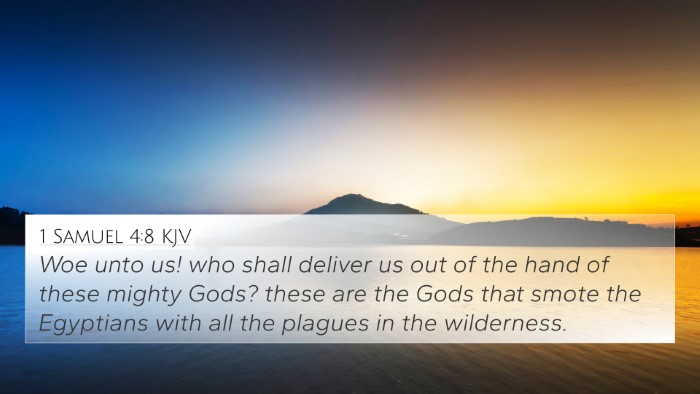Understanding 1 Samuel 5:7
Verse: 1 Samuel 5:7 - "And when the men of Ashdod saw that it was so, they said, The ark of the God of Israel shall not abide with us: for his hand is sore upon us, and upon Dagon our god."
Meaning and Interpretation
This verse is pivotal in illustrating the consequences of opposing the true God. Here, the Philistines, after capturing the Ark of the Covenant, quickly realize that their god Dagon is no match for the power of the Lord. The plagues that befall them serve as a reminder of God's sovereignty.
Commentary Insights
- Matthew Henry: He emphasizes the folly of the Philistines believing that they could contain the presence of God. The suffering experienced by them represented a divine judgment for their arrogance and idol worship.
- Albert Barnes: Barnes points out that the Philistines recognized the misalignment of their worship. They attempted to juxtapose their idol Dagon against the God of Israel, leading to their acknowledgment of God's overwhelming power.
- Adam Clarke: Clarke discusses the symbolism of Dagon falling. It signifies the ultimate failure of idolatry in the face of true divinity. The Philistines, hence, were compelled to reassess their beliefs and practices.
Key Themes
This verse conjures several significant themes, particularly the dangers of idolatry, the sovereignty of God, and the consequences of opposing divine authority.
Idolatry and Divine Judgment
The worship of Dagon is representative of human inclination towards idolatry, signifying false security. The subsequent calamities experienced by the Philistines showcase the peril of placing trust in anything other than God.
God’s Sovereignty
The verse serves as a powerful reminder of God’s ultimate authority over all nations and deities. The devastation that fell upon the Philistines illustrates that no earthly power can withstand the will of God.
Repentance and Realization
The realization among the men of Ashdod signifies a pivotal moment in their understanding of God's nature. Acknowledging their plight encourages a deeper reflection on the need for true worship and reverence for God.
Bible Verse Cross-References
- Exodus 12:12: God’s judgment on the gods of Egypt.
- Deuteronomy 4:35: The Lord is God; there is no other.
- 1 Chronicles 16:26: All the gods of the people are idols; but the Lord made the heavens.
- Isaiah 46:5: To whom will you liken Me? Or shall I be equal? Says the Holy One.
- Jeremiah 10:10: The Lord is the true God; He is the living God and the everlasting King.
- Matthew 12:29: How can one enter a strong man’s house and plunder his goods, unless he first binds the strong man?
- Revelation 20:10: The devil who deceived them was cast into the lake of fire.
Connecting Themes Across Scriptures
The themes presented in 1 Samuel 5:7 are explored further through various passages in the Bible, drawing connections between the Old and New Testament. The signs of divine judgment see parallels in the plagues in Egypt and the fallen nature of idols in both Testaments.
Thematic Bible Verse Connections
By exploring cross-references among these scriptures, we gain insight into God’s nature and His dealings with humanity. These connections draw readers into a profound understanding of spiritual truths:
- Linking the fall of Dagon to the eventual judgment of all false gods, as seen throughout scripture.
- Recognizing patterns of repentance in the hearts of nations, signaling the consistent need for divine revelation and truth.
- Comparative analysis of God's judgment across different epochs, revealing a continual theme of God asserting His supremacy.
Conclusion
1 Samuel 5:7 acts as a significant touchpoint for understanding the relationship between the divine and human faithfulness. This verse, supported by various cross-references, accentuates the importance of prioritizing true worship over false idols, the need for acknowledgment of God’s sovereignty, and the potential for human transformation. Through diligent study and resources such as a Bible concordance or cross-reference guide, believers can deepen their insight into the interconnectedness of scripture.
